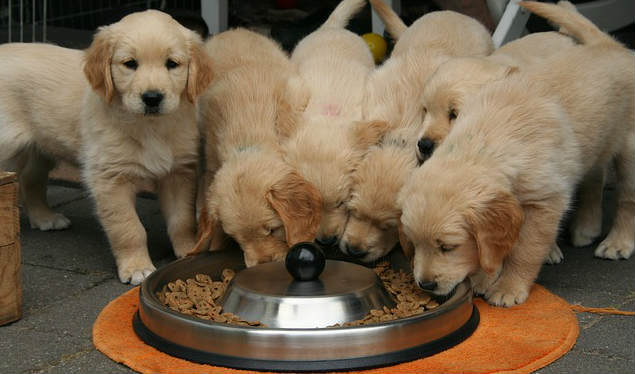How can I stop resource guarding in dogs?
Original Question: Hi! I have a one-year-old Cocker Spaniel puppy that gets possessive with her food with other dogs. I visit my mom a lot who has Rhodesian Ridgeback and a Cocker Spaniel - both are older dogs. My moms Cocker Spaniel and mine have gotten in a few fights over food. What can I do to prevent this from happening? - Rhianna
 Aug 30, 2017
Aug 30, 2017
Hi Rhianna,
Thanks for your question.
This is a classic example of a behavioral condition known as resource guarding.
If this is a behavior that recently developed, I would look for medical issues that could make your dog irritable. Any chronic pain condition such as arthritis, bladder stones for back pain can make a dog more aggressive in general. By the way you phrase your question, it sounds as though this has been present a long time.
The absolute best advice is to simply avoid the stimulus that triggers the behavior. I would ask you the question, why does it matter to you that you can feed your dogs with your mom’s dog? It would be a lot easier and less stressful for all of you if you just feed your dog in a private area away from everyone else. That is my grand advice to you. People often think a behavior needs to be fixed, but if this is the only time this happens, then avoiding it is simple and reasonable.
There are ways to correct resource guarding in dogs. If you want him to come away from food and you want to start teaching him to walk away from his food so he learns not to be so possessive, then call him over and give him a very special treat that he only receives if he follows your instructions. This will get him used to walking away and being rewarded for it. I would not recommend you physically move him. If he won’t come, then I would feed him only a tiny amount of food, let him walk away and come to you for the treat because there is nothing left in the bowl.
If this isn’t working, then I would recommend you contact a behavioral specialist that works with aggressive dogs. You can also consider anti-anxiety supplements and medications. These can be used in combination and you should consult your veterinarian.
Best of luck.
Dr. Clayton Greenway


Disclaimer: healthcareforpets.com and its team of veterinarians and clinicians do not endorse any products, services, or recommended advice. All advice presented by our veterinarians, clinicians, tools, resources, etc is not meant to replace a regular physical exam and consultation with your primary veterinarian or other clinicians. We always encourage you to seek medical advice from your regular veterinarian.

